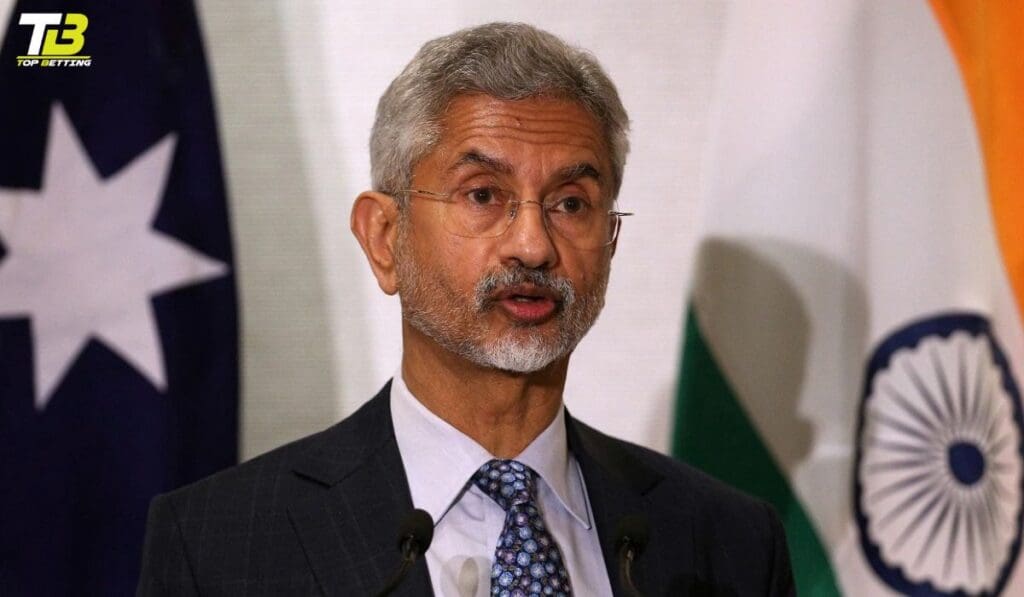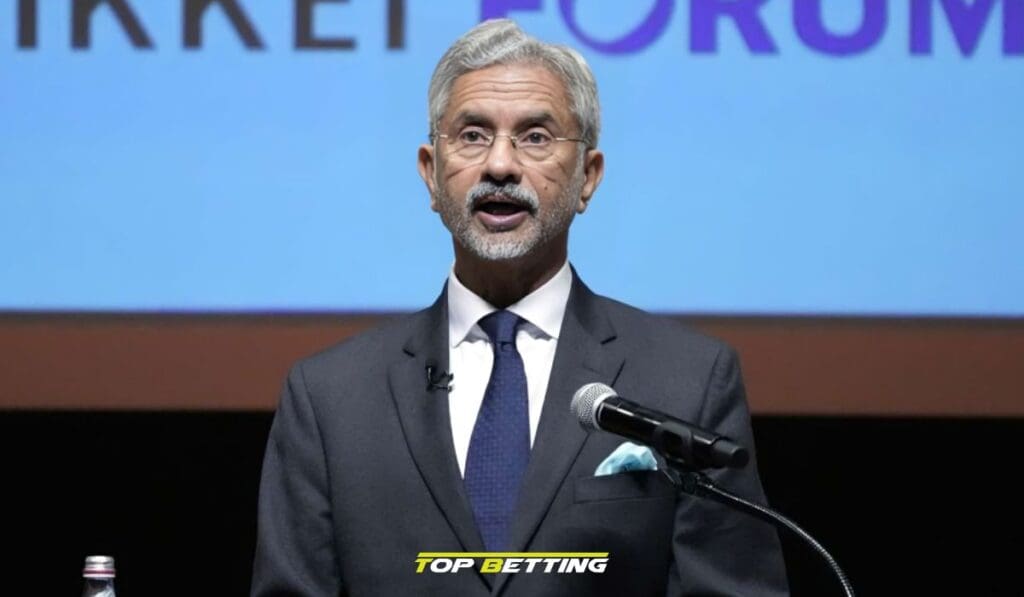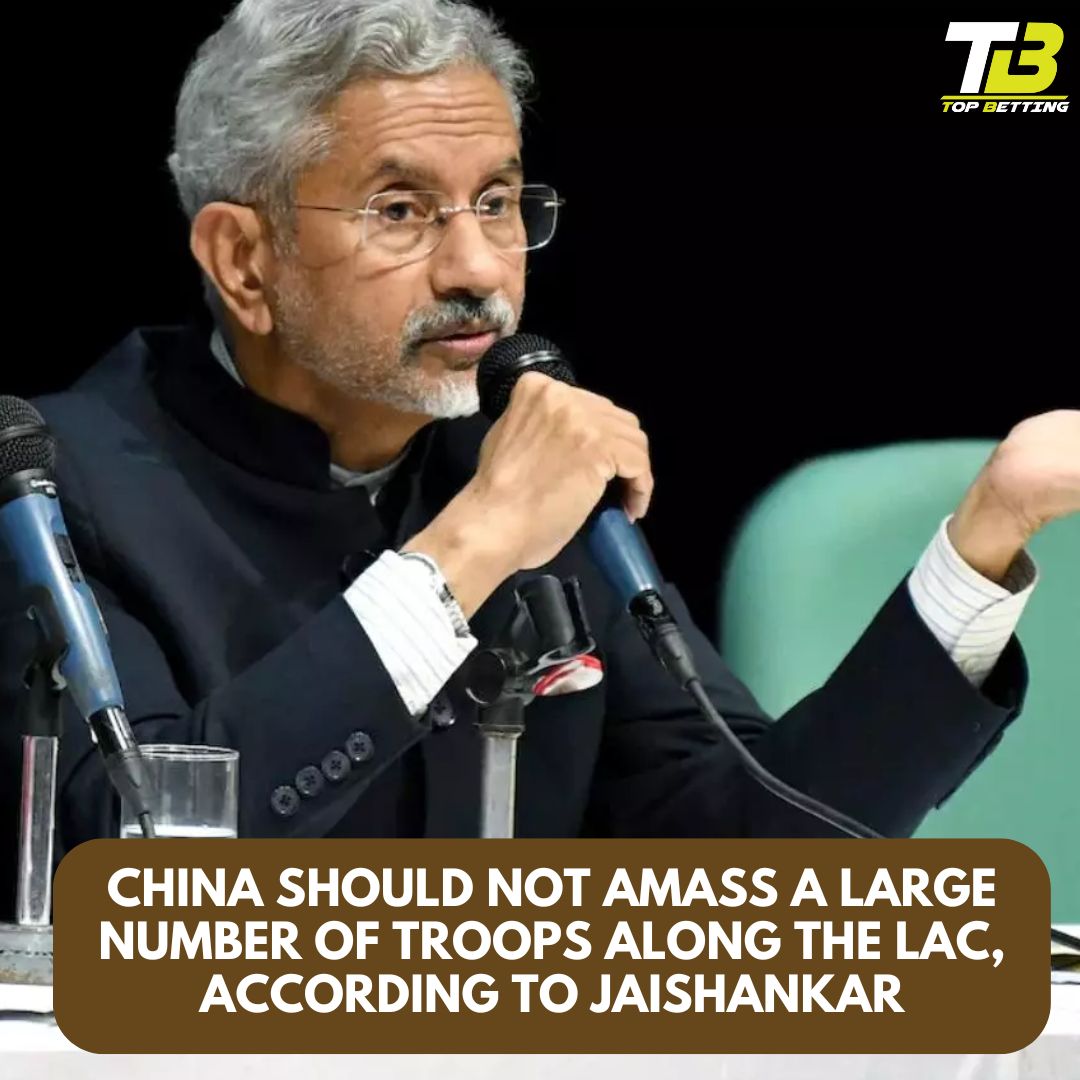
China should not amass a large number of troops | Jaishankar
Speaking on Monday night at the Express Adda in New Delhi, Jaishankar engaged in a discussion with C Raja Mohan, Contributing Editor of The Indian Express, and Anant Goenka, Executive Director of The Indian Express Group.
According to External Affairs Minister S Jaishankar, there have been roughly 50,000–60,000 troops stationed on both sides of the India–China border in eastern Ladakh for nearly four years. He stated that the situation is “very tense and dangerous” and that it is in the best interests of both nations to not have “that many forces on the Line of Actual Control (LAC)”.
Speaking on Monday night at the Express Adda in New Delhi, Jaishankar engaged in a discussion with C Raja Mohan, Contributing Editor of The Indian Express, and Anant Goenka, Executive Director of The Indian Express Group.
In response to a question from Zhou Yongsheng, the political counsellor at the Chinese embassy in New Delhi, Jaishankar stated: “I think it’s in our common interest that we should not have that many forces on the LAC, it’s in our common interest that we should observe agreements that we have.” Zhou noted that China and India are “important neighbours,” so how can they find common interests and work together rather than against each other? Furthermore, I think China has an interest in this as well as the common interest these days.
“Neither of us has benefited much from the strain. Thus, I really think it’s in our best interests to get this resolved as quickly as possible. And I’m still fully dedicated to coming up with a just and sensible solution. However, one that honors contracts, acknowledges the LAC, and refrains from trying to alter the status quo,” he remarked.
When asked if having more seats (in Parliament) would give the current administration greater authority to discuss the matter, Jaishankar responded, “To me, the territory of India and the fairness of a boundary solution has nothing to do with how many seats.” Either the bargain is good or it’s not good. It is not the question of having a political majority or not that matters today. The problem isn’t whether you have a fair deal on the table.
The minister stated that he has discussed many of these topics with his longtime friend and Chinese colleague, Wang Yi. “We haven’t stopped communicating. He was the guy I spoke to even the morning following the Galwan incident,” he stated, noting that the circumstances at the LAC were “very stressful and hazardous” at the moment.
Along with several ambassadors and diplomats from Mongolia, Slovenia, Estonia, Chile, Spain, Italy, and the Philippines, among others, the German Ambassador Phillip Ackermann, Australian High Commissioner Philip Green, Indonesian Ambassador Ina Krishnamurti, Nepal Ambassador Shankar Prasad Sharma, and Bhutan Ambassador Major General Vetsop Namgyel attended the Express Adda.
In the over two-hour-long conversation, Jaishankar covered a wide range of other foreign policy topics, such as India’s relationship with Pakistan and its future.
He emphasized that the topic of terrorism needs to be discussed in relation to Pakistan. “We have never refused to speak with Pakistan. The dilemma is, though, what exactly do you talk about? Certainly, that ought to be the main topic of discussion if there are so many terrorist training facilities for individuals who come over to complicate your life. “I refuse to sidestep the topic of terrorism just to have a conversation with them,” he declared.

“Governments talk to governments and the military is also part of the Pakistani government,” he said, adding that India was not opposed to speaking with the Pakistani military.
Given that India has seen both majority and coalition governments, Jaishankar stated that “nobody wishes a coalition on this country ever again” when the conversation turned to the impending Lok Sabha elections.
Regarding the significance of discussions in a democratic setting, he stated: “This nation would not exist without discussions; there have to be discussions everywhere. I therefore have no problem with that. The thing that bothers me is that if you question something, it’s always associated with a political goal.
Lightheartedly, the minister also mentioned how many relationships he kept up to date and how he even shared forwards from WhatsApp with his counterparts in foreign ministry. “I send jokes and forwards on WhatsApp, but it’s a combination. The very concept of diplomacy is evolving in the modern era as more people communicate with one another directly and bypass onerous formalities. Like any other job, it involves making friends, hanging out, eating, and spending time with coworkers.

Throughout the past five years, Jaishankar—a former diplomat who is now a politician—has represented India diplomatically in a world that is changing quickly. With his two works, The India Way and Why Bharat Matters, he has attempted to develop the theoretical foundations of India’s position on the international scene as one of the most intelligent voices on the foreign policy of the Modi administration.











